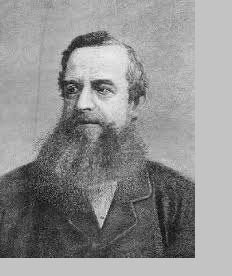Establishment of local self-government
British authors called Ripon the father of the local self-government, but this statement of British historians is exaggerated because local self-government has always been important in India.
Studies in India’s ancient and medieval history are known that there are local institutions in each era. But after the establishment of East India Company, their status became pathetic.
After taking power by the British crown, their development was focused again and Lord Mayo gave his co-operation in this work. There were local bodies existed in all the provinces before Ripon came. There were governmental and non-official members in these institutions.
These institutions had some financial rights, but most of the expenditure was allowed from the government. There were also arrangements for elected members in these institutions. Though the number of government members was low, they were very influential. So, Ripon tried to blow a new life in these institutions.
Dr. S. Gopal has written that Ripon’s goals in establishing and developing the local self-government were the symbol of his idealistic and generosity. He wanted that political education should be given to Indians by this.
Ripon also had written to the Home Government, I wish that in the Indian society, meritorious and influential people should be given successive training so that they take an active interest in active arrangements in their local affairs and take an active part.
For this purpose, in 1881, Ripon asked suggestions from the provincial governments for the autonomy of local administration. On May 18, 1882, he passed a resolution expressing his opinion that he wanted autonomy in local administration not only for administrative convenience but for political
experience and public education. He knew that there may be mistakes in the beginning, but in the future, the educated classes will become able to serve well the liability of administration and feeling of responsibility will be increased more and more in the governance. Thus, Ripon wanted to establish a healthy tradition.
In 1882, Ripon proposed to establish local self-government. In which it was emphasized that in the local people, many qualified people are far from the administration’s work, hence the establishment of local self-government is necessary for bringing them into administration. He also warned that if
government intervention continues, then these institutions will be feared to fail.
The following suggestions were given in this proposal of Ripon-
- Local boards, roads and hospitals etc., that have been set up for the assistance of the district officer, should be terminated and rural boards should be established at their place.
- A provisional district board should be arranged for the supervision of work and interests of the local rural boards, that work in the form of delegations on time to time.
- The number of government members nominated in these local institutions should not be more than one-third and the remaining members should be elected on the basis of the elected system. The decision of the majority will be valid in these members.
- The government will be able to reconsider the decision taken by these institutions. If the officer of an institution has done an unfair job again and again and that officer has to remove for this reason, then it will be done only with the permission of the central government.
- The working area of each board should be determined and given certain rights and financial resources.
- The chairman of these boards will be non-official.
Though by this proposal of Ripon the local self-government was established, Ripon’s aims did not fulfill by it. Dodwell has written that the intervention of the Governor General was continued in the local institutions as the Governor General did not want to decrease his rights and the public opinion was not so strong that it could oppose him.
Yet, this work of Ripon was commendable. All the provincial governments welcomed it. All the bureaucrats of India and the District Officer continued to follow this policy of Ripon. This work of Ripon was most welcomed by the newly educated section of India.
Dr. S. Gopal wrote that Indians started looking towards Ripon for their leadership. Establishment of local self-government is most important in Ripon’s creative works, which seeds his popularity in Indians.
Reference : https://www.indiaolddays.com/





